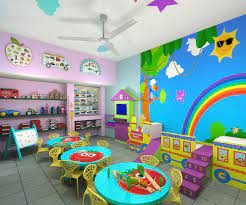A new study conducted by researchers at University College London (UCL) suggests that introducing calorie labels on alcoholic drinks could encourage heavier drinkers to adopt healthier drinking habits. The findings, published in BMJ Open, reveal that just over half (54%) of hazardous drinkers—those at greater risk due to their alcohol consumption—would make changes to their drinking behavior if calorie information were available on alcohol packaging.
The survey, which involved 4,683 adults in England, showed that 44% of lighter drinkers also supported calorie labels. However, it is the hazardous drinkers, who consume a larger proportion of their daily calories from alcohol, that would likely benefit the most. About 27% of these drinkers indicated they would opt for lower-calorie beverages, while 18% said they would reduce the frequency of their drinking, and 17% stated they would consume fewer drinks.
Potential Impact on Weight Management
Lead researcher, Professor Andrew Steptoe from UCL’s Department of Behavioural Science and Health, highlighted the potential public health benefits: “Our study found that a sizeable proportion of heavier drinkers said they would change their drinking habits if calorie labelling was introduced. This suggests labelling might help target higher-risk drinkers who are getting a greater proportion of calories from alcohol and are more likely to gain excess weight as a result.”
Alcohol is a hidden source of calories in many diets, with men deriving 9% of their daily intake from alcoholic drinks, and women, 5%. Calorie labelling on alcoholic beverages could therefore contribute to a healthier lifestyle for many, albeit in a modest way, Steptoe added.
Knowledge Gap in Caloric Content of Alcohol
The study also uncovered that hazardous drinkers were generally more accurate in estimating the calorie content of various alcoholic drinks—such as beer, wine, and spirits—compared to low-risk drinkers and non-drinkers. Interestingly, when they made errors, they tended to overestimate rather than underestimate the calories, which researchers believe may lead to unintentional increases in consumption if calorie content is clarified.
Co-author Professor Jamie Brown remarked that while the study’s findings are promising, calorie labelling alone is unlikely to drastically reduce alcohol consumption or obesity rates. “It might have a positive role as part of a more comprehensive approach, including regulation on advertising, availability, taxation, and price,” he explained.
Calorie Labelling—A Step Forward?
Although calorie information is mandatory for food and non-alcoholic drinks in the UK, alcoholic beverages are currently exempt, with only alcohol content, volume, and allergen information being required on labels. The findings from this study suggest that public support for calorie labelling on alcohol is relatively strong, with 58% of respondents believing it would be useful. Of these, 64% said labels should be provided in shops and supermarkets, while 52% felt it would be helpful in pubs, bars, and restaurants.
However, the study also notes that drinkers were generally less supportive of calorie labelling than non-drinkers, reflecting potential resistance from some sections of the public.
Policy Implications
The study was commissioned by the National Institute for Health and Care Research (NIHR) Obesity Policy Research Programme, which aims to explore strategies for reducing the impacts of alcohol consumption and obesity in the UK. The researchers believe that encouraging the production and availability of lower-calorie alcoholic beverages could also help mitigate the problem, as this was the most common behavior change indicated by hazardous drinkers.
In conclusion, while alcohol calorie labelling alone may not be a silver bullet, it could form an essential component of broader public health initiatives aimed at tackling the dual challenges of alcohol consumption and obesity.












